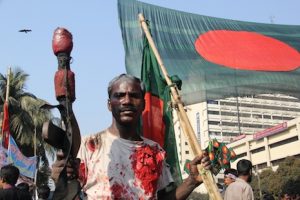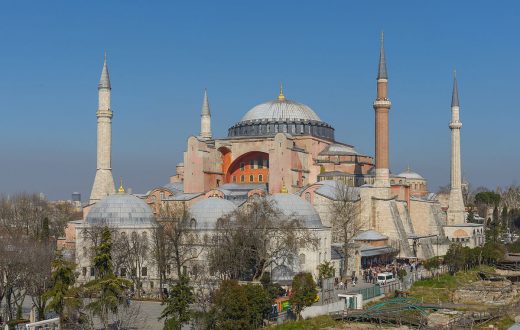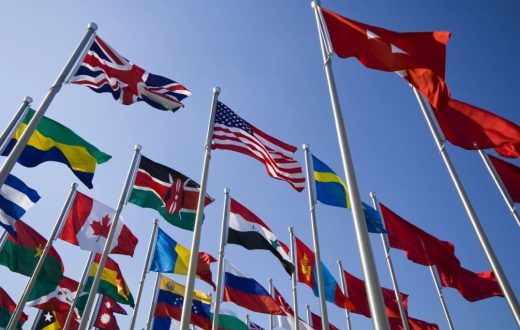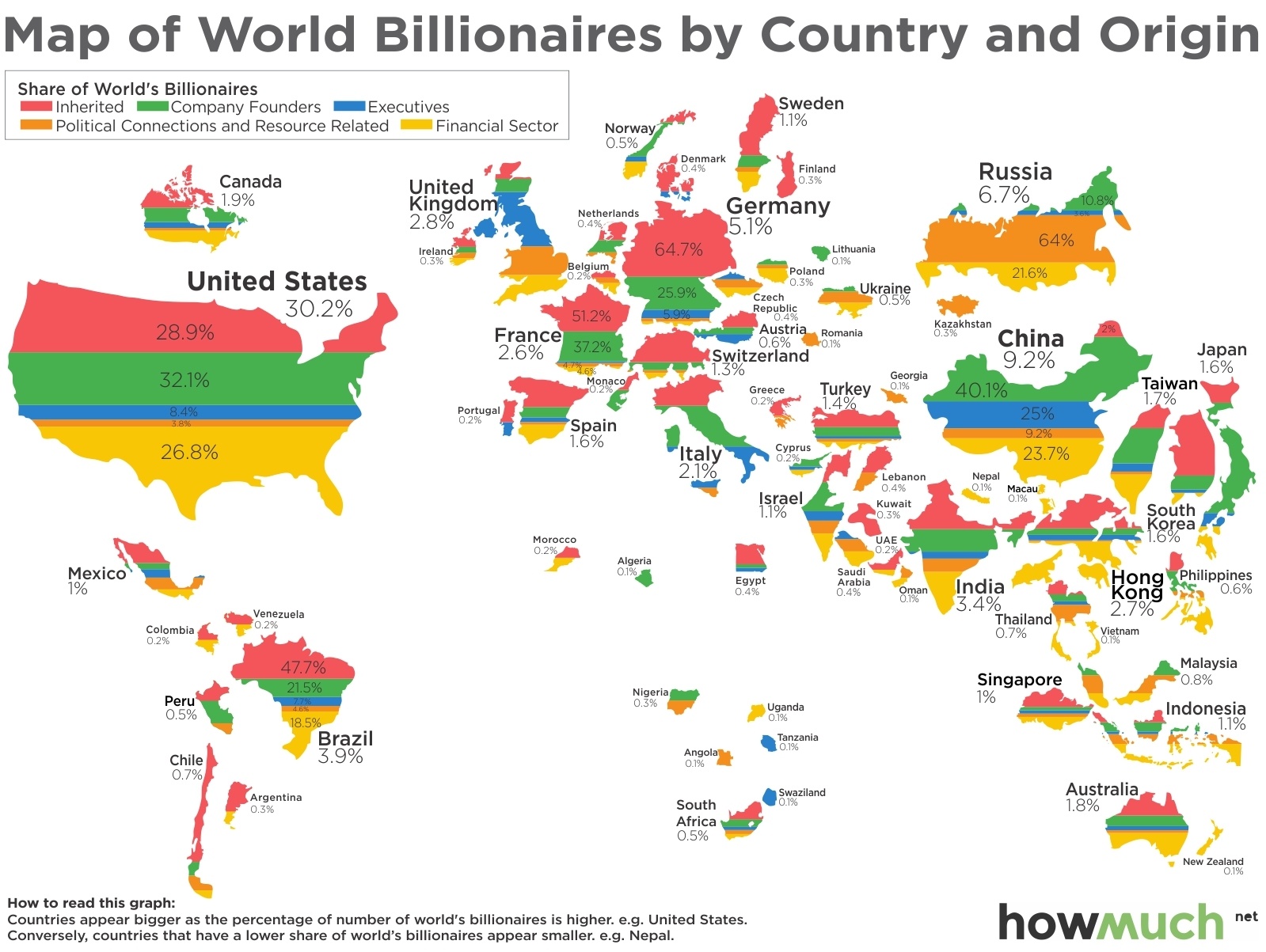To understand Geopolitics in the 21st century it’s important to have a look at the religious phenomenon. In Hundreds of country all around the world , religion plays a highly important role in the lives of the average citizens and therefore come to plays into Politics. Many States defines themselves at a Religious State such as the Jewish State (Israel), The Islamic Spiritual Leader (Saudi Arabia) or The Guardian of Christianity (Poland).
10. Morocco (93%, 2015)
Morocco is one of the most religious countries in the world. A poll conducted in 2015 revealed that 93% of Moroccans who participated in the survey considered religion to be an important part of their daily lives. In Morocco, around 98.7% of the population are Muslims, while only about 1.1% are Christians and 0.2% are Jews. With such a large Muslim populace, the practices of Islam dictate the ways of life for the Moroccan people. The Muslim population of the nation is obliged to pray five times a day, and fast from dawn to dusk during the month of Ramadan. Even though expatriates are permitted to follow th

eir usual schedules during Ramadan, they must not eat, drink, smoke, or chew gum in front of the public eye during this period. Friday is treated as a holiday in the country, since it is the Muslim Holy Day of Worship. Moroccans cherish their respective family’s honor, and will go to extreme extents to preserve it. The family system and a respect for elders is highly valued in the Moroccan way of life.
9. Georgia (93%, 2015)
The majority of Georgia’s population (83.9%) practice Orthodox Christianity, and are affiliated to the Georgian Orthodox Church. 1% belong to the Russian Orthodox Church, 3.9% follow the Armenian Apostolic Church, and 0.8% are Roman Catholics. The rest of the population of this country is mostly comprised by Muslims and Jews. 93% of the people of Georgia claim to consider religion as an integral part of their daily life, as per a survey conducted in 2015.
8. Bangladesh (93% in 2015, ~100%, 2009)
Islam plays an important role in the daily lives of the Muslims of Bangladesh (about 88% of Bangladesh’s population). Islam is also the official religion of this country, which has one of the largest Muslim communities in the world. Muslim festivals are celebrated with great pomp and festivity throughout the region. Bangladeshis are strict adherents to their respective religious beliefs, with nearly 100% of the surveyed population claiming that religion is an important part of their daily lives in 2009. In 2015, however, this percentage dropped down to 93%.ss
7. Armenia (93%, 2015)
The Armenian Apostolic Church constitutes about 94% of Armenia’s population. These Armenian Christians are believed to have derived their faith directly from Christ’s apostles. In 301 AD, Armenia became the first country to declare Christianity as its state religion. New converts to Protestant and Non-Trinitarian Christianity comprise the largest religious minorities in the country. Besides Christianity, other religions form an ever small minority still. Armenians are highly religious, with 93% of them regarding religion as being an important part of their daily lives.
6. Thailand (94%, 2015)
With around 95% of Thailand’s population comprising of Theraveda Buddhists, the principles of Buddhism play a large role in the day-to-day life of the Thai people. The Buddhists of the region attempt to inculcate the qualities of self-respect, self-control, and non-violence in their ways of life. A positive and friendly attitude towards others is always encouraged in the Buddhist religion. Hinduism is the largest religious minority in Thailand, with Hindu traditions and customs exerting their own distinct influence on Thai culture and traditions at large. 94% of the population of Thailand regards religion as being a vital aspect of their daily life, as per an international poll conducted in 2015.
5. Yemen (99%, 2009)
Even though the followers of the different schools of Islam occupy separate territories in Yemen, Islam unifies the Yemenis across all boundaries in the country. The Yemenis strictly adhere to the five tenets of Islam. Men gather together at the mosques for prayers and, on the Sabbath, for sermons, while women are strictly prohibited from entering these public places of worship. All of the major festivals on the Arab Muslim calendar are observed by the Yemenis. A 2009 WIN/Gallup International polling data revealed that 99% of Yemenis considered religion to an important part of their daily lives.
4. Indonesia (99%, 2009)
Many Indonesians regard atheism as being socially unacceptable. The government of the country recognizes Islam, Hinduism, Protestantism, Catholicism, and Buddhism as the six official religions of the country. Every Indonesian must be affiliated to one of these religions, as official documents like passports and identity cards need to mention the affiliation of an individual’s religion. Islam is the most commonly practiced religion of the country, and Indonesia also has the highest number of Muslims in the world. In recent years, Indonesians claiming pro-atheistic opinions have been subjected to threats by local community members and arrests by the police. The strict adherence of Indonesians towards religion is also reflected in the 2009 polls, where 99% of the people of this country considered religion to be an important factor in their daily lives.
3. Malawi (99%, 2009)
Malawi, a south-east African nation, has one of the most religious populations in the world. Christianity is followed by the majority of Malawi’s population, with a significant minority practicing Islam. Hindus, Jews, Baha’is, and Rastafarians are the other religious minorities of the country, though each make up only a small percentage of the population. 99% of Malawi’ s people inculcate religious beliefs in their daily lives, and strictly adhere to the principles of their religion.
2. Sri Lanka (99%, 2009)
Sri Lanka is a multi-religious society. Though Buddhism is the major religion, other religions, such as Hinduism, Christianity, and Islam, are also commonly followed there. Buddhism had played a very significant role in shaping the history of the country, and continues to influence the ethical and philosophical aspects of the Sinhalese culture. The Hindus of Sri Lanka also strictly adhere to their own religious views, and the large number of Hindu shrines seen in the country are evidence of this fact. Overall, the population of Sri Lanka is highly religious, with 99% claiming that religion plays an important role in their daily lives, as per data obtained from the 2009 survey conducted by WIN/Gallup International polls.
1. Niger (~100%, 2009)
As per the data generated from the 2009 WIN/Gallup International polls, virtually all of Niger’s population claims that religion plays an important role in their daily lives. This data places Niger at the highest position among the most religious countries in the world. Islam is the religion for the majority of the residents of Niger, with 94% of the population following this religion. The majority of Niger’s Muslims are Sunnis practicing the Maliki school of jurisprudence. Animism, Christianity, Hinduism, Baha’ism, and some traditional African religions are some of the other minority religions practiced in the country.
This article has been written by WorldAtlas.com and is available through this link : http://www.worldatlas.com/articles/most-religious-countries-in-the-world.html








